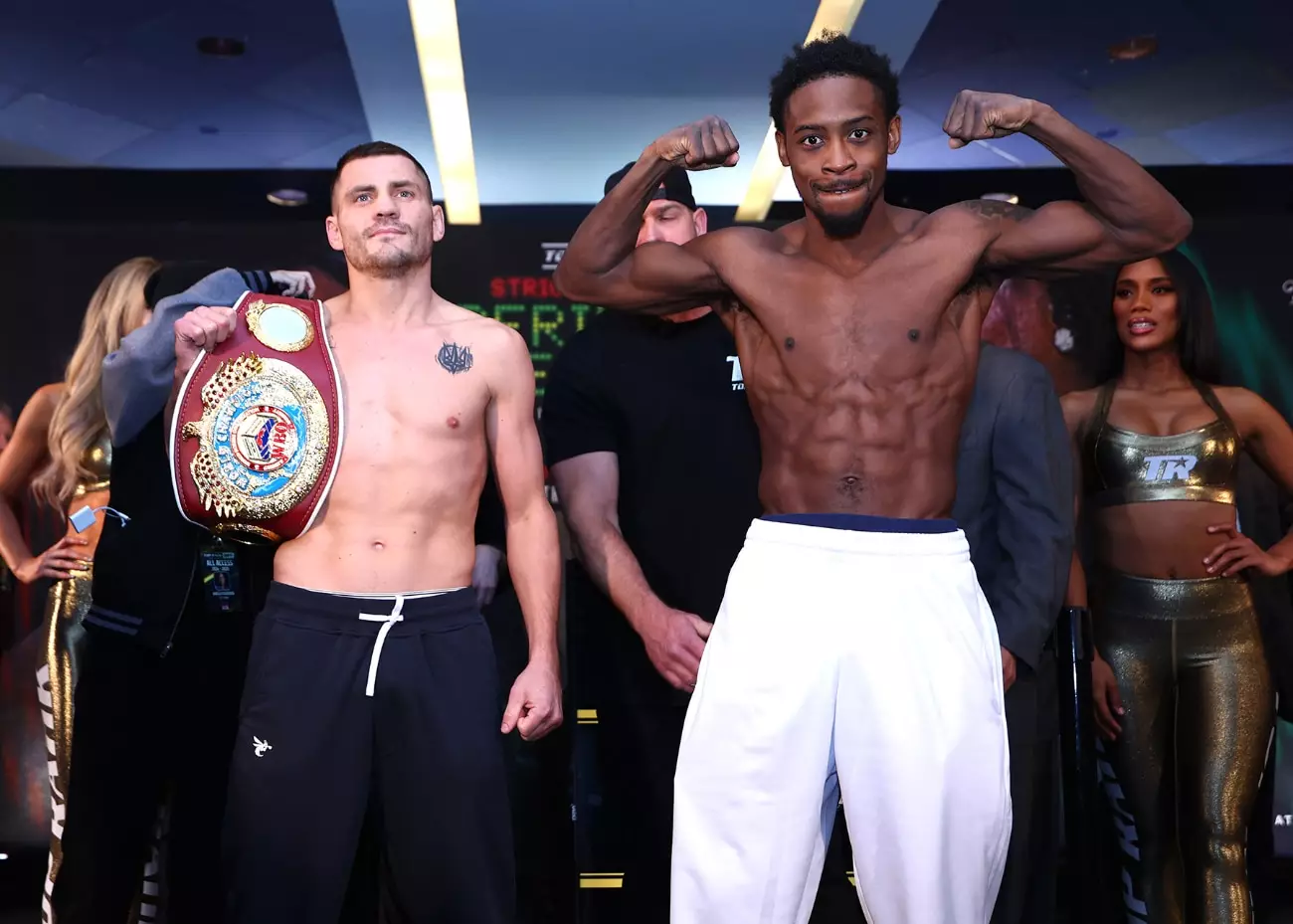The world of professional boxing is no stranger to rivalries; however, the animosity between rising star Keyshawn Davis and former champion Teofimo Lopez has taken a particularly sour turn. Davis recently broadcasted his refusal to fight Lopez, attributing this decision to a racist prank that he insists originated from Lopez. This unfolding drama highlights deeper issues within the sport, including the pressure of financial instability and the complexities of personal relationships among fighters.
Keyshawn Davis’s explosive claim that Teofimo Lopez sent a box filled with bananas and watermelons to his hotel room has ignited a firestorm of controversy surrounding Lopez’s character. Davis has labeled Lopez a “racist” for what he interprets as an offensive jab at his ethnicity. This accusation, while it may seem sensational, carries significant weight in an industry that often grapples with racial tensions. The implications of such allegations can be far-reaching, affecting a fighter’s reputation, endorsements, and overall marketability.
Davis’s statement serves as a bold declaration that he will not only refuse to fight Lopez, but also distance himself from a boxer he believes is leveraging their rivalry for financial gain. In the cutthroat world of boxing, where financial success is often tied to high-profile matchups, Davis’s critique raises important questions about ethical conduct and personal integrity among fighters.
Beneath the surface of this personal feud lies the issue of financial stability in professional boxing, particularly for athletes on the rise and those who have already reached championship levels. Davis speculates that Lopez is in dire straits regarding his finances—hinting at tax issues that have left Lopez scrambling for “cash-outs.” Davis believes that Lopez may be seeking a high-stakes bout to alleviate his financial burdens. Such speculation can often drive a narrative that distracts from genuine sporting talent and paves the way for a more transactional approach to match-ups.
In the broader context, this scenario is not unique to Davis and Lopez. Numerous boxers fight not only for titles and glory but also to escape precarious financial situations. The ongoing pressure on athletes to deliver big paydays can blur the lines between genuine rivalry and convenient opportunism, and it can create human conundrums that challenge the integrity of the sport.
While Davis positions himself as an emerging superstar, the reality is that his track record remains under scrutiny. Critics argue that he is eager to claim the moral high ground against Lopez while indirectly dodging the tough matches that could bolster his credentials. Davis’s refusal to fight Lopez could be seen as both a statement of principle and a strategic move; he isn’t presently established enough to turn down significant fight opportunities without facing criticism for lacking the necessary experience.
Additionally, Davis’s attempts to retract his earlier accusations only muddy the waters further. His apology directed to WBO lightweight champion Denys Berinchyk indicates a self-awareness that recognizes the blind spots in his judgment—a commendable trait, but it also hints at a lack of focus amidst the chaos of rivalry. Davis must grapple with the consequences of his accusations, particularly if they detract from his preparation for an upcoming title fight against Berinchyk.
As Davis prepares for his encounter with Berinchyk, the fight carries more than just a title; it symbolizes a potential fork in the road for him. A loss could jeopardize his standing in the boxing community and leave him with fewer immediate options. The underlying tension between pursuing personal principles and fostering a career within the realities of professional sports is palpable.
Ultimately, Keyshawn Davis is at a crossroads. The stakes are higher than ever, and his choices will not only impact his career trajectory but also influence the narrative of his rivalry with Teofimo Lopez. As this situation evolves, the boxing world—and the audience—will be eagerly watching to see how these two fighters navigate the choppy waters of respect, financial need, and the quest for validation in a sport that is as personal as it is competitive.

